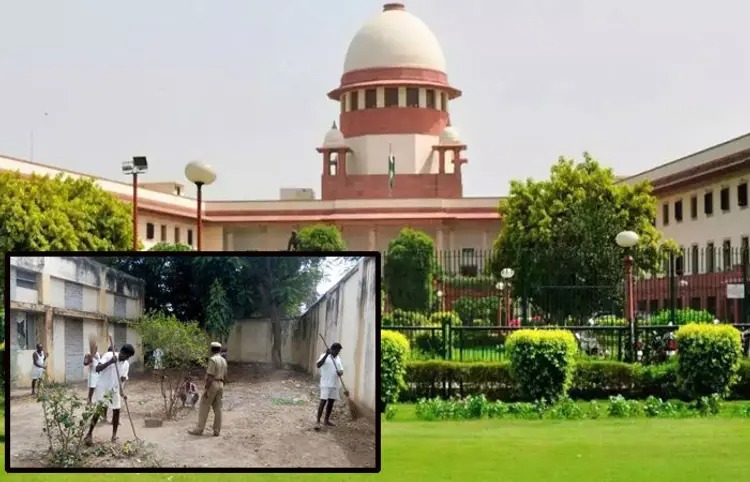
Supreme Court: The Supreme Court today ended the long-standing practice of caste-based discrimination in jails. The court has declared caste-based discrimination in the jail manual as unconstitutional and has directed to immediately amend it. The judgment, headed by Chief Justice Dhananjay Y Chandrachud, specifically focused on discrimination in prisons against Scheduled Castes (SC), Scheduled Tribes (ST) and Denotified Tribes. The court directed the Center and all states that no prisoner should face discrimination in work or accommodation on the basis of caste. The Supreme Court also mentioned the rule of the jail manual where lower caste people are made to do cleaning work and upper caste people are made to work in the kitchen. The CJI bench has warned the states that if any kind of caste-based discrimination is found in jails, they will be held responsible.
Prisoners should be treated humanely: CJI
Justice Chandrachud said, 'Caste-based discrimination, whether direct or indirect, is a legacy of the slave regime. According to the Constitution, prisoners should be treated humanely and their mental and physical well-being should be taken care of. Justice JB Pardiwala and Justice Manoj Mishra were also involved in this case. The bench directed all those states where such discrimination is going on. The bench said that you should immediately amend your jail rules and submit a compliance report within three months. Along with this, the Central Government has also been ordered to amend the Model Jail Rules, 2016, which allows states to classify criminals as 'habitual criminals'.
The Supreme Court said that such discrimination violates the principles of equality enshrined in the Constitution and asked the prison authorities to make their policies in line with the Constitution. The court held that assigning work on the basis of caste, such as giving cleaning work to lower castes and reserving kitchen work for upper castes, violates Article 15 of the Constitution which prohibits discrimination on the basis of caste. The court said that these practices not only promote inequality but also do not contribute to the reform and rehabilitation of prisoners.
Prison manual caste-based bias
The judgment said prison manuals cannot perpetuate caste-based prejudice, nor restrict any group from performing work such as cleaning. The court also referred to Article 17 which abolishes untouchability and said that assignment of 'labour' on the basis of caste is a form of untouchability which is unacceptable in a constitutional democracy. The Supreme Court also struck down provisions of the Uttar Pradesh jail manual that forced prisoners belonging to certain castes to do menial jobs. The court said such practices promote caste-based prejudice and violate human dignity.
Citing Article 23, the Court said that segregation of work in prisons on the basis of caste is a form of forced labor which is constitutionally unacceptable. Furthermore, the court condemned the classification of 'habitual offenders' and declared it unconstitutional, particularly to classify people belonging to liberated tribes as criminals. Chief Justice Chandrachud said members of Vimukt tribes have historically been considered born criminals. This classification is an insult to their dignity and a gross violation of Article 21, which grants the right to live with dignity. Free Tribes are communities that were designated as 'born criminals' under the Criminal Tribes Act during British rule.
Supreme Court itself took cognizance of the issue of discrimination in jails
The court has directed all the states to amend their jail manuals in accordance with this decision. Along with this, the court also ordered that references to caste should be removed from the register of convicts or remand prisoners and prisoners should not be forced to work in dangerous conditions like cleaning drains. The Supreme Court has announced an implementation hearing three months after taking suo motu cognizance of the issue of discrimination in prisons, and asked all states to submit status reports on the implementation of its orders. In January, the court had issued a notice to the central government and other concerned parties on this issue. The court took cognizance of the case after a petition filed by journalist and Maharashtra resident Sukanya Shanta. The petition seeks to end the discriminatory rules present in the jail manual, which directly violate the principles of equality of the Constitution.
 look news india
look news india
